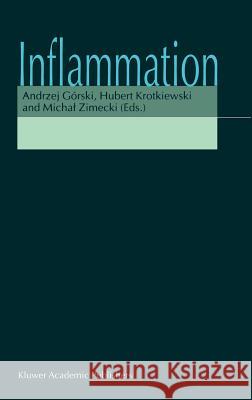Inflammation » książka
Inflammation
ISBN-13: 9781402000867 / Angielski / Twarda / 2001 / 222 str.
lnflammatory reactions are generated in response to extemal and intemal stimuli, such as infection, trauma, clinical insult or dysregulation of the umnune system. The int1ammatory responses may bc antigen-specific or non-specific, local or systemic, chronic or rapid and severe, characterized by a massive release of mediators, often lethal. The aim of this book is to review selectcd aspects associated with the mechanism of the pathology of int1ammatory processes of ditlerent origin and to evaluate therapeutic strategies aimed at combating various inflamma tory diseases. The introductory article describcs the inmlllnological status of patients with severe sepsis, with particular attention paid to the roJe of circulating neutrophils. Intcgrin activation and chemokine receptor expression and the roles of IL-15, prostaglandins and leukotriens in inflmmnation and immunity are the subjects of next articles. Subsequent reviews are focused on allergic diseases involving mast cells and Th2 type cytokines, in particular the mech anisms of atopic dennatitis and signaling hy IL-13. The intlmmnatory responscs elicited by Mycobacterium tuberculosis and Mvcobacferium nviwn are also analyzed with special interest paid to the mechanisms which allow the bacteria to escape the host' s immune reactions. The thcrapeutic potential of IL- I 0 in infection and inflammation and thc possible factors contributing to the devclopment of idiopathic pulmonary fibrosis are rcvicwed in the next articles. The final report demonstrates the advantages of bacteriophage ther apy in thc context of the aggravating problem of hactcrial resistance to antibi otics.











